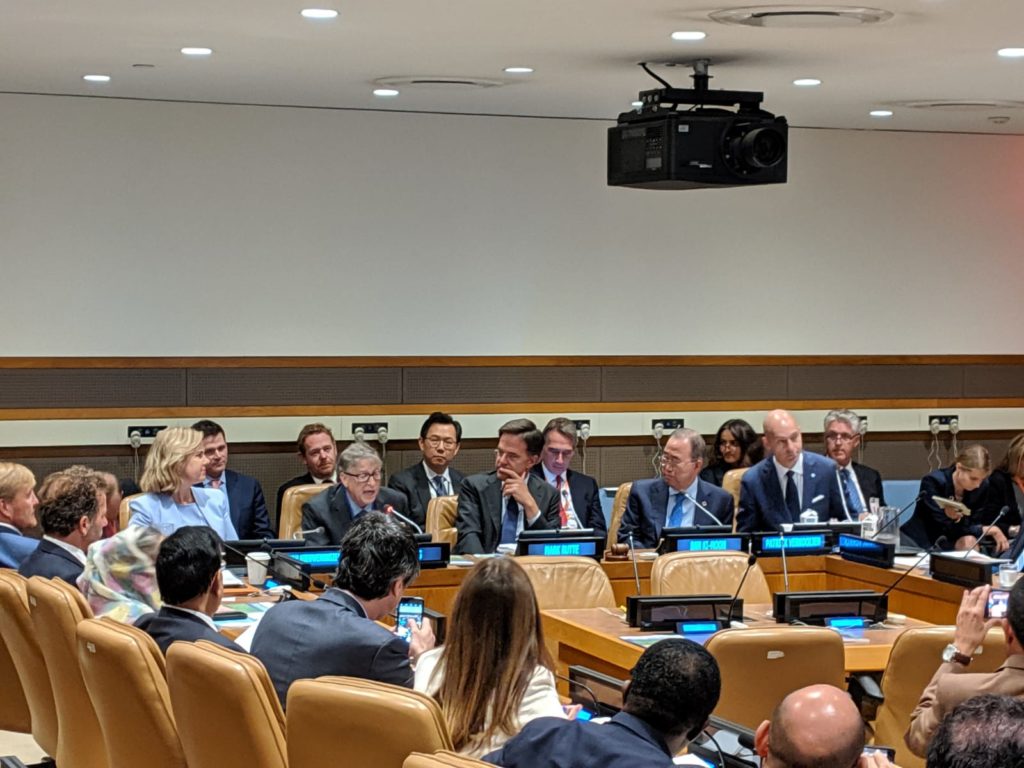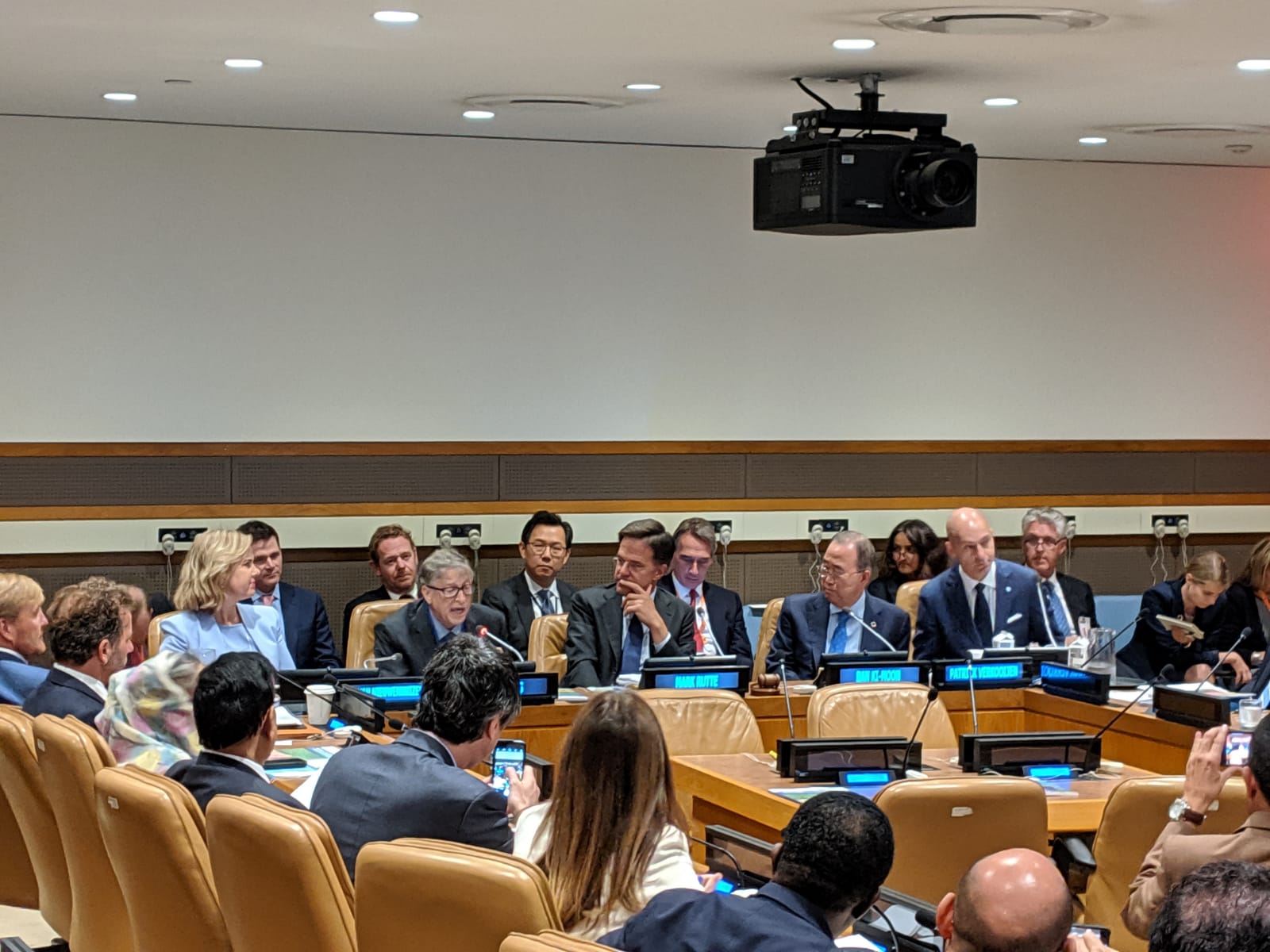At the end of September, the Global Commission on Adaptation launched a Year of Action to accelerate and scale climate adaptation solutions, with key tracks focused on water and nature-based solutions.
The Commission is led by Ban Ki-moon, 8th Secretary General of the United Nations; Bill Gates, co-chair of the Bill and Melinda Gates Foundation; and Kristalina Georgieva, CEO of the World Bank.
At an event at the UN headquarters, Commission leaders and partners launched eight action tracks that focus on: Finance and Investment, Food Security and Agriculture, Nature-Based Solutions, Water, Cities, Locally-Led Action, Infrastructure, and Preventing Disasters.
“Without urgent action to help the world’s smallholder farmers we risk undermining our food security for generations to come,” said Ban Ki-moon. “Today’s financial commitments are a positive step forward, but more must be done to ensure the world’s farmers are equipped for long-term sustainable, climate-smart production.”
More than 75 national governments, multilateral banks, civil society organizations, and private sector actors have signed on to support and deliver on these initiatives. The Commission and its partners will mobilize political, technical, and financial support for adaptation, through both existing initiatives and new coalitions for change.

The Commission championed this package of initiatives at the September 2019 UN Climate Action Summit and will continue through the Year of Action, leading up to the Climate Adaptation Summit hosted by the Netherlands in October 2020.
The Year of Action is intended to build on the landmark report from the Commission, released earlier in September, which calls for leaders to accelerate adaptation around the world. The report finds that investing in adaptation brings significant economic, environmental, and social benefits. Analysis by the Commission showed that investing $1.8 trillion in adaptation in just five areas can deliver $7.1 trillion in benefits between 2020 to 2030.
The Action Tracks aim to raise the level of ambition on adaptation among countries, which is critical due to increasing impacts and damage caused by climate change. Under the Paris Agreement, countries are expected to come forward with enhanced national climate plans by COP26 in 2020. The Commission welcomes additional partners and support for these initiatives.
“The next year until the Climate Action Summit in the Netherlands on the 22nd October 2020 is about implementing real solutions around the world which show that adaptation is not just the right thing to do but the smart thing to do,” said Patrick Verkooijen, CEO, the Global Center on Adaptation, and Co-managing Partner of the Global Commission on Adaptation. “Adaptation not only has economic benefits, but it is also essential if we are to avoid climate apartheid—a world in which the wealthy pay to escape from the worst impacts of climate change, while the poor are left to suffer.”
The action track for Nature-Based Solutions aims to reduce climate risks for hundreds of millions of people by 2030 via nature-based solutions and increased ecological resilience. This Action Track aligns with the Nature-Based Solutions for Climate Manifesto presented at the UN Climate Action Summit. The Commission, Canada, and other partners have committed to mobilizing political and private sector leadership—at both the national and city level—to implement large-scale, coordinated approaches to nature-based solutions.
For the water action track, the Commission and its partners intend to drive the resilience of natural and managed freshwater systems and the critical human systems dependent upon water to reduce risks for over 2.5 billion people. More than 30 partners—including public, private, and civil society institutions—have already pledged their support for the Action Track, committing to action in over 15 countries, 40 basins, and 60 cities through existing and planned resources.
- Water Resilience Preparedness: To assist at least 50 countries to address climate change risks in their water systems.
- Resilient Basin Futures: To support efforts in at least 100 river and groundwater basins to plan and finance climate adaptation and resilience measures from source to sea.
- City Water Resilience: To support at least 100 cities to develop and implement integrated urban water resilience planning and investments to address vulnerabilities in water-related infrastructure and management.
Follow the hyperlink to read the September climate resilience report.









